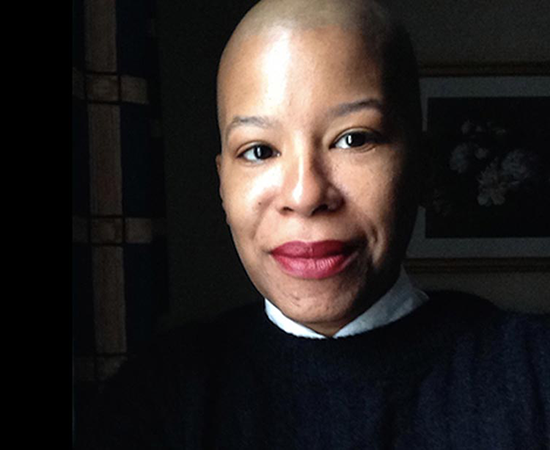The Alchemy Lecture is a multi-vocal model that brings together a constellation of thinkers and practitioners from different disciplines and geographies annually to think together and in public on the most pressing issues of our times.
The City of Our Dreaming

Four Alchemists. One Lecture.
A Constellation of Ideas.
Date: October 30, 2024
All of us who are drawn to cities imagine them as much as find them. We imagine places for collective living, art and community making. What we find is that we are pushed out by capital, condofication, and financialization.
What are the cities of our dreaming? Who lives there and how do we live there? The city of our dreaming is one of our collective inhabitation.
The four speakers for The City of Our Dreaming imagine the architectures and infrastructures that make possible, inevitable, and irresistible, gestures of freedom, modes of sustenance and the necessity and pleasure of breaking bread together.
Hosted by Christina Sharpe – Professor, Canada Research Chair in Black Studies in the Humanities, Andrea Davis – Associate Vice President EDI, Wilfrid Laurier, Jan Anderson – Assistant Professor of English, Trent University and Ravi de Costa – Associate Dean of LA&PS.
Moderator: Christina Sharpe
Christina Sharpe is a writer, Professor, and Tier 1 Canada Research Chair in Black Studies in the Humanities at York University in Toronto. Sharpe is the author of Monstrous Intimacies: Making Post-Slavery Subjects (2010), In the Wake: On Blackness and Being (2016), and Ordinary Notes (2023)—winner of the Hilary Weston Writer’s Trust Prize in Nonfiction and the Hodler Prize, and finalist for The National Book Award in Nonfiction, The National Book Critics Circle Award in Nonfiction, the Los Angeles Times Current Interest Book Award, and the James Tait Black Prize in Biography. In April 2024, she was awarded a Windham-Campbell Prize in Nonfiction and was named a Guggenheim Fellow. In May she received the Canada Council for the Arts Molson Prize for the Sciences and Humanities. Sharpe is currently working on What Could a Vessel Be? (FSG/Knopf, Canada 2025) and Black. Still. Life. (Duke 2027). Her writing has appeared in many artist catalogues and journals including Frieze, Paris Review, Harpers, BOMB Magazine, and The Funambulist.

Speakers

Leanne Betasamosake Simpson
Leanne Betasamosake Simpson is a Michi Saagiig Nishnaabeg scholar, writer, and musician. She is the author of eight previous books, including the novel Noopiming: A Cure for White Ladies, short listed for the Dublin Literary prize and the Governor General’s award for fiction. Leanne’s last album, Theory of Ice, released by You’ve Changed Records was released in 2021 and short-listed for the Polaris Prize and she was the 2021 winner of the Prism Prize’s Willie Dunn Award. Her latest project Theory of Water: Nishnaabeg Maps to the Times Ahead will be published by Dionne Brand’s Alchemy imprint at Knopf Canada and Haymarket books in the US in the spring of 2025. Leanne is a member of Alderville First Nation.

Gabriela Leandro Pereira
Gabriela Leandro Pereira is a professor and researcher at the Faculty of Architecture and the Postgraduate Program in Architecture and Urbanism at the Federal University of Bahia. She is a member of the Lugar Comum Research Group and coordinator of the Corpo, Discurso e Território Study Group. She is co-author of the multimedia essay "Ruins of the South Atlantic", published by Ellipses Journal (2023, South Africa). In 2024 she was co-curator of the Open Study "Architectures of Revolt" (Goethe Institut - Salvador) with the South African resident architect Huda Tayob. She currently coordinates the project "The fabulous inventory of the Material History of Cities" and "Transatlantic Shares", at the Federal University of Bahia. And she is an Advisor to Casa Sueli Carneiro, an organization in memory of black women's activism based in São Paulo.

V. Mitch McEwen
V. Mitch McEwen leads Harlem-based Atelier Office and teaches on the faculty at Princeton University's School of Architecture. At Princeton she directs the architecture and technology research group Black Box, exploring biomaterials and algorithmic processes in design and construction. She is one of ten co-founders of the Black Reconstruction Collective. McEwen’s design work has been commissioned by the Museum of Modern Art and the Venice Architecture Biennale US Pavilion, as well as awarded grants from the Graham Foundation, Knight Foundation, and New York State Council on the Arts.

Laleh Khalili
Laleh Khalili is the Al Qasimi Professor of Gulf Studies at the University of Exeter in the United Kingdom. She has written or edited seven books, including Heroes and Martyrs of Palestine: The Politics of National Commemoration (2007), Sinews of War and Trade: Shipping and Capitalism in the Arabian Peninsula (2020), The Corporeal Life of Seafaring (2024) and Extractive Capitalism (forthcoming 2025). She loves to cook for those she loves.
Our Partners




The Collaboratory for Black Poiēsis at University of Toronto
Trent University, Office of the Dean, Humanities and Social Sciences
G. Ngugi
Dionne Brand, Editorial Director, Alchemy by Knopf
Canada Research Chair in Black Studies in the Humanities
York Research Chair in Linguistic Diversity & Community Vitality
The School of English and Theatre Studies, University of Guelph
Robarts Centre for Canadian Studies
The Carl V Granger Chair in Africana and American Studies, University at Buffalo
Center for Imagination in the Borderlands, Arizona State University
Department of English, University of Toronto
Jean Augustine Chair in Education, Community and Diaspora
Department of English
Department of Humanities
Black Canadian Studies
Social and Political Thought
Humanities, Faculty of Graduate Studies
The Office of the President
The Office of the Dean, LA&PS
Faculty of Environmental and Urban Change
